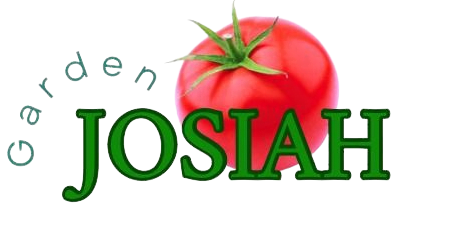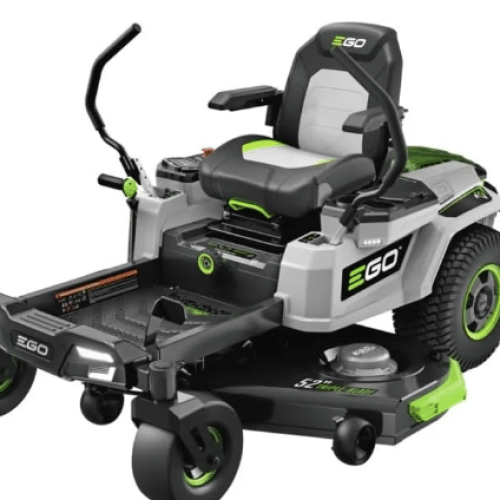It’s JV Charles again .As gardeners, we all want our plants to grow well. Have you thought about a natural way to help them? Organic fertilizer pellets are a great choice for a healthy garden. They make your garden look great and are good for the planet. But what are they and how do they help your plants and the earth? Let’s find out. I’ve included real life info I’ve found out personally over the years.
Key Takeaways
- Organic fertilizer pellets provide a natural and sustainable solution for plant growth and soil health
- These pellets are made from a variety of plant-based and animal-derived sources, offering a slow-release of essential nutrients
- Unlike synthetic fertilizers, organic pellets help build soil fertility and promote eco-friendly gardening practices
- Proper application and understanding your garden’s needs can make organic fertilizer pellets a versatile and effective tool
- Organic fertilizer pellets can contribute to lush, thriving plants while supporting sustainable and environmentally conscious gardening
What are Organic Fertilizer Pellets?
Organic fertilizer pellets are made from natural stuff like plants and animals. They don’t give nutrients all at once like synthetic ones do. Instead, they release nutrients slowly, letting plants take them in as they need them. This slow release means plants get the nutrients they need without wasting any.
Understanding the Difference Between Organic and Synthetic Fertilizers
Organic fertilizers help make soil healthy by supporting good microorganisms and improving soil structure. They also help soil hold moisture and nutrients better. On the other hand, synthetic fertilizers can pollute water by washing into it during rain.
Organic pellets are better for plants because they don’t stress them out with too many nutrients. They also don’t pollute waterways. Plus, they’re easy to use and spread evenly, so you don’t overdo it. Trust me on this.
Slow-Release Nutrients for Optimal Plant Growth
Organic pellets release nutrients slowly, which means less chance of them washing away. This slow release helps plants get the nutrients they need just when they need them. It’s good for their growth and health.
Organic pellets are better for the planet because they’re made from natural stuff and don’t harm the environment. They’re also a smart choice for your wallet because they save on water and reduce the need for other treatments. This means healthier plants and fewer pests and diseases.
The Benefits of Using Organic Fertilizer Pellets
Using organic fertilizer pellets in our gardens has many benefits. These natural, slow-release fertilizers support sustainable gardening. They boost soil health and fertility by adding beneficial microorganisms and nutrients for plants.
Promoting Sustainable and Eco-Friendly Gardening
Organic fertilizer pellets are great for the environment. They don’t harm the soil like synthetic ones can. Instead, they feed plants slowly, reducing pollution and helping plants grow well.
Enhancing Soil Health and Fertility
Organic pellets make soil healthier and more fertile. They’re full of nutrients like nitrogen, phosphorus, and potassium. As they break down, they feed good microorganisms in the soil, making it better at holding water.way better!
These pellets give plants nutrients over a long time, making them grow strong and healthy. This means we use fewer chemicals and our gardens are more sustainable.
“Organic fertilizer pellets are a game-changer for gardeners who want to take a more sustainable approach to soil management. The benefits of these natural fertilizers are truly kick butt.”- JV Charles
Adding organic fertilizer pellets to our gardens helps us garden in an eco-friendly way. It leads to better soil and healthier plants. This way, we care for the land and protect nature.
Organic Fertilizer Pellets: A Versatile Solution
Organic fertilizer pellets are a great choice for gardeners. They are natural and work well for many types of gardens. These pellets slowly release nutrients, giving plants a steady supply. This is perfect for different plants’ needs.
The Pro-Pell-It! brand offers many organic fertilizers. They have products like 2.5-0-2.5 Alfalfa Meal and 8-2-5 Granular All-Purpose Blend. These are made for specific gardening needs and are approved by top organizations.
For targeted care, Pro-Pell-It! has special blends. You can find 13-0-0 Blood Meal and 3-15-0 Bone Meal. These help fix specific nutrient gaps or boost plant growth. Some products, like Micronized Bone Meal, make nutrients easier for plants to use.
Want a balanced lawn fertilizer? Try the 4-3-2 Nutri-Proganic Granular Organic Chicken Manure Premium Fertilizer. It has the right mix of nitrogen, phosphorus, and potassium for healthy grass. Nitrogen helps with growth, while phosphorus and potassium make roots strong.
Organic fertilizer pellets from brands like Pro-Pell-It! and Supply Solutions are great for all gardens. They are sustainable and help your plants grow well. By choosing the right type and amount, your garden will be healthy all season.
Key Ingredients in Organic Fertilizer Pellets
Organic fertilizer pellets mix plant and animal sources for a full nutrient package for your plants. These ingredients work together to feed your garden and keep plants healthy and productive.
Plant-Based and Animal-Derived Sources
Plant-based ingredients like seaweed and kelp are common in these pellets. They give plants the nutrients they need to grow. Animal sources, such as bone meal, add more nutrients and help make the soil fertile.
Mineral Supplements for Balanced Nutrition
Organic pellets also have mineral supplements for a complete diet for your plants. Minerals like iron and magnesium are added to keep plants strong and healthy.
This mix of ingredients in organic fertilizer pellets gives your plants everything they need to thrive. It helps create a healthy and productive garden.
| Nutrient | Plant-Based Sources | Animal-Derived Sources | Mineral Supplements |
|---|---|---|---|
| Nitrogen (N) | Seaweed, plant meals | Blood meal, manure | – |
| Phosphorus (P) | Plant meals | Bone meal | Rock phosphate |
| Potassium (K) | Seaweed, kelp | Manure | Granite meal, greensand |
| Calcium (Ca) | – | Bone meal | Limestone |
| Magnesium (Mg) | – | – | Dolomite |
| Sulfur (S) | – | – | Gypsum |
Knowing what’s in organic fertilizer pellets helps you give your garden the right nutrients. This supports the health and growth of your plants.
Applying Organic Fertilizer Pellets Effectively
To get the best from your organic fertilizer pellets, think about when and how often to apply them. These pellets release nutrients slowly, so you don’t need to apply them as often as synthetic ones. By planning carefully, you can help your plants grow strong and healthy over time.
Timing and Frequency of Application
When to apply organic fertilizer pellets depends on your plants and the season. Early spring and mid-summer are usually the best times. This gives your plants the nutrients they need to grow well.
Organic pellets don’t need to be applied as often as synthetic ones. They release nutrients slowly over months, giving your plants a steady supply. Aim to apply them every 3-6 months, depending on your garden and the product’s advice.
| Fertilizer Type | Total Nitrogen (%) | Total Phosphorus (%) | Total Potassium (%) | Calcium (%) | Sodium (%) | Organic Matter (%) | Moisture Content (%) |
|---|---|---|---|---|---|---|---|
| Cattle Manure | 1.36 | 0.223 | 2.02 | 4.49 | 0.09 | 29.4 | 40.4 |
| Alfalfa Compost | 2.81 | 0.43 | 2.67 | 1.43 | 0.13 | 91.0 | 4.92 |
| “Agri-Boost” Organic Fertilizer Pellets | 1.22 | 0.59 | 1.64 | 2.47 | 0.22 | 59.0 | 66.7 |
Follow the product’s instructions and adjust as needed for your garden. This way, you can make the most of your organic fertilizer pellets. It will help your plants stay healthy and productive for a long time.
Choosing the Right Organic Fertilizer Pellets
When picking organic fertilizer pellets for your garden, think about what your garden needs and the soil type. Some organic fertilizers work better for certain plants or soil types. Make sure to check the nutrient content and how they are meant to be used to match your garden’s needs.
Matching Fertilizer to Garden Needs
To find the best organic fertilizer pellets, first understand what your garden needs. Think about the types of plants, the soil’s texture, and any nutrient gaps. Look for advice from gardening experts or local resources to pick the right organic fertilizer for your garden.
- Identify the nutrient requirements of your plants, such as nitrogen (N), phosphorus (P), and potassium (K)
- Assess your soil’s texture and pH levels, as they influence nutrient availability
- Determine any specific nutrient deficiencies in your soil based on soil test results
- Consider the growth stage and needs of your plants, whether they are annuals, perennials, or fruiting crops
By matching the organic fertilizer pellets to your garden’s specific needs, you can give your plants the right nutrients. This helps them stay healthy and strong.
“Selecting the right organic fertilizer pellets is crucial for maintaining a thriving, eco-friendly garden.”
Success comes from choosing organic fertilizer pellets that fit your garden’s unique needs. With the right nutrient balance and slow-release, you can feed your plants well. This supports sustainable, healthy growth.
Conclusion
Organic fertilizer pellets are a great choice for gardeners wanting to help their plants grow and keep soil healthy. They slowly release important nutrients, helping plants do their best. This makes gardening better for the planet.
These pellets boost soil fertility and cut down on the use of harmful chemicals. They are a smart way to get healthy, strong plants in your garden.
Using organic fertilizer pellets right can make your garden look amazing. By adding them to our gardens, we support sustainable gardening. This not only helps plants but also makes our soil healthier over time.
Together, we can make our gardens and communities greener and more eco-friendly. Organic fertilizer pellets are key to our goal of better plant health and soil. They help us care for our gardens naturally, making them flourish for many years.
FAQ
What are organic fertilizer pellets?
Organic fertilizer pellets are natural soil additives. They come from plants and animals. They give plants nutrients slowly, unlike synthetic fertilizers which work fast.
How do organic fertilizer pellets differ from synthetic fertilizers?
Organic pellets release nutrients slowly. This lets plants take them in as they need them. This slow release means plants get nutrients just when they need them, reducing waste.
What are the benefits of using organic fertilizer pellets?
Using organic pellets is good for the planet and your garden. They make soil healthier and plants stronger. This means you use fewer synthetic chemicals.
Where can organic fertilizer pellets be used?
You can use organic pellets everywhere in your garden. They work well with vegetables, flowers, lawns, and shrubs. Their slow release is great for many plant types.
What are the key ingredients in organic fertilizer pellets?
These pellets mix plant and animal sources like seaweed, kelp, and bone meal. They also have mineral supplements for a full nutrient package.
How should organic fertilizer pellets be applied?
Because pellets release nutrients slowly, you don’t need to apply them often. The best time to apply depends on your plants and the season. Early spring and mid-summer are usually good times.
How do I choose the right organic fertilizer pellets for my garden?
Think about what your garden needs and its soil type. Check the pellets’ nutrient content and use. Talk to gardening experts or look up advice to find the best pellets for your garden.
Source Links
- https://eartheasy.com/organic-wool-garden-pellets-slow-release-fertilizer-9-0-2-22-lbs/ – Organic Wool Garden Pellets Slow Release Fertilizer 9-0-2 – 22 lbs
- https://www.groworganic.com/products/pv-organics-all-purpose-pelleted-fertilizer-50-lb – PV Organics All Purpose Pelleted Fertilizer 4-3-2 (50 lb)
- https://agri-boost.org/product/agri-boost-pellets/ – AGRI-BOOST PELLETS | SHOP
- https://loyalfertilizer.com/blog/organic-fertilizer-pellets/ – Organic Fertilizer Pellets: Benefits and Application Tips
- https://lawnlove.com/blog/what-is-organic-fertilizer/ – What is Organic Fertilizer?
- https://www.growveg.com/guides/top-5-organic-fertilizers-reviewed/ – Top 5 Organic Fertilizers REVIEWED
- https://www.milorganite.com/lawn-care/organic-lawn-care/organic-vs-synthetic – Organic vs Synthetic Fertilizer | Milorganite
- https://royalbrinkman.com/knowledge-center/crop-care/advantages-organic-fertilizers – What are the advantages of organic fertilizers?
- https://www.komeco.nl/en/10-advantages-of-organic-fertilizers/ – 10 advantages of organic fertilizers
- https://www.marionag.com/products/organic-fertilizer-pro-pell-it/ – Organic Fertilizer – PRO-PELL-IT! | Marion Ag Services, Inc. | Growing Together
- https://www.mysolutionssupply.com/product/nutriproganic-granular/ – Supply Solutions 4-3-2 Nutri-Proganic Granular Chicken Manure Fertilizer
- https://www.linkedin.com/pulse/introduction-organic-fertilizer-ring-die-pelletizer-unveiling-wang-7549e – Introduction to Organic Fertilizer Ring Die Pelletizer: Unveiling Its Advantages
- https://extension.oregonstate.edu/news/heres-scoop-chemical-organic-fertilizers – Here’s the scoop on chemical and organic fertilizers
- https://bonnieplants.com/blogs/the-bonnie-difference/whats-in-a-package-of-fertilizer – What Is in Fertilizer? | Fertilizer Ingredients & Formulas
- https://www.parkseed.com/blog/understanding-fertilizer – Understanding Fertilizer
- https://patents.google.com/patent/US6325837B1/en – US6325837B1 – Method of application of organic fertilizer
- https://forestry.com/wp/guides/guide-to-organic-fertilizers-perfect-choices-for-every-garden/ – Guide to Organic Fertilizers: Perfect Choices for Every Garden – Forestry.com
- https://extension.umd.edu/resource/garden-fertilizer-basics – Garden Fertilizer Basics | University of Maryland Extension
- https://extension.umn.edu/manage-soil-nutrients/quick-guide-fertilizing-plants – Quick guide to fertilizing plants
- https://hgic.clemson.edu/factsheet/choosing-a-fertilizer/ – Choosing A Fertilizer
- https://grow.ifa.coop/gardening/best-organic-fertilizer-for-urban-gardens – An Urban Gardener’s Guide to Finding the Best Organic Fertilizer | IFA’s Blog
- https://www.sciencedirect.com/topics/agricultural-and-biological-sciences/organic-fertilizer – Organic Fertilizer – an overview
- https://cmg.extension.colostate.edu/Gardennotes/234.pdf – PDF
- https://www.linkedin.com/pulse/relationship-between-chemical-fertilizer-organic-effective-mia-zhang-bksuc – The Relationship Between Chemical Fertilizer and Organic Fertilizer: Effective Application






